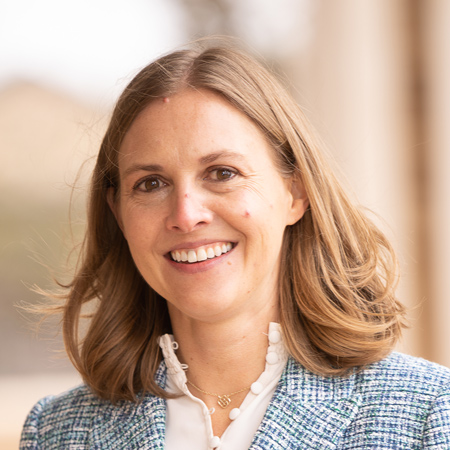Learn More
Embrace Your Passion For Ministry
You have a passion for service and ministering to others no matter what. With ACU’s Master of Arts in Christian Ministry, you will deepen your understanding of Christian Scripture and tradition, explore your ministerial vocation, and learn how to practice ministry effectively.
Online Option
Interested in completing your coursework online? With our online Master of Arts in Christian Ministry, you can get the same flexible degree program all from the comfort of your home. Additionally, you can customize your course experience through a hybrid approach.
About the Program

Alongside other students, you will be formed intellectually and spiritually to practice ministry in one of its many forms. With ACU’s Master of Arts in Christian Ministry, you will be challenged to lead, mentor, and grow individuals and teams using theologically informed ministry tools to serve the church and the world.
Program Structure
All the Details on Your Degree
ACU’s Master’s in Christian Ministry gives you the opportunity to jump into courses specifically geared at understanding biblical topics such as the history of Christianity, Christian spiritual formation, and systematic theology. Overall, you will develop the ability to integrate theological and theoretical concepts for any ministry situation.
In cooperation with ACU’s School of Social Work and Department of Marriage and Family Studies, the Graduate School of Theology has developed plans whereby students can pursue the MSSW or MMFT degrees concurrently with the MACM.
Jump Start Your Master’s Degree
If you plan to pursue a Master of Arts in Christian Ministry or Master of Divinity degree, save money by first enrolling in our Graduate Certificate in Practical Ministry. Simply complete the certificate program, and ACU will seamlessly apply your 18 credit hours toward your master’s.
Required Hours
48 hours
24 months time frame
Example Coursework
Biblical Exegesis
History of Christianity
Systematic Theology
Foundations of the Theology of Ministry
Department
Upcoming Start Dates
January 12, 2026
May 4, 2026
Common Job Titles
Youth or Student Minister
Children’s or Family Minister
Preacher
Church Administrator
Non Profit Administrator
Concentrations
Honed in on teaching you the skills necessary to deliver ministerial leadership for a wide range of ages and denominations, this program will equip you for ministry in various forms. You can focus in areas such as student and family ministry, spiritual formation, and ministerial leadership.
MEET THE PROGRAM DIRECTOR

Dr. Tera Harmon, Master of Arts in Christian Ministry
Dr. Tera Harmon is the Program Director for Master of Arts in Christian Ministry. She earned her bachelor’s degree and Master of Divinity from ACU’s College of Biblical Studies in 2007. She received her doctorate in Church History from Catholic University in 2016. Since graduating with her Ph.D., Tera has been teaching with ACU Online in the Graduate School of Theology. After adjunct teaching part-time for a few years, Tera and her family moved back to Abilene in the fall of 2022 where she currently serves as an assistant professor and the director of distance learning.
Spotlight

Why Study Theology?
ACU’s mission is to educate students for Christian service and leadership throughout the world, which includes forming students’ spiritual and intellectual development in a distinctively and unapologetically Christian environment. So, with an expanded view of what theology can offer, let’s get more specific. Why should you get a theology degree?

Four Benefits of Getting a Theology Degree at ACU
When it comes to theology master’s programs, what makes ACU’s stand out? Hear directly from Dr. Myles Werntz, Director of ACU’s Baptist Studies Center, in a recent blog post.

U.S. News Highlights ACU’s Nationally Ranked Student Experience for Fifth Year in a Row
For the fifth consecutive year, the student experience at Abilene Christian University, both in and out of the classroom, was ranked as one of the nation’s best in the 2024 U.S. News & World Report rankings released today – in the categories of Study Abroad, Learning Communities, Service Learning, First-Year Experience and Senior Capstone.

Faculty Spotlight: Tera Harmon
Meet Dr. Tera Harmon, assistant professor and director of distance learning for the Graduate School of Theology for ACU. Tera’s goal as an ACU graduate turned faculty member is to not only inform students through vocational teaching, but to form them through mentorship into the person God created them to be.

Steps to Advance Your Ministry Career with a Graduate Degree
A Master of Divinity could be your first step towards a promising career in ministry – and the satisfaction of fulfilling your God-given purpose.

Vocational Identity
Graduates will clearly communicate their ministerial identity
Scripture and Tradition
Graduates will be deeply formed by the knowledge of the content and theological trajectories of Christian Scriptures and the Christian tradition and integrate it into their ministerial contexts.
Effective Ministerial Practice
Graduates will demonstrate emotional and spiritual maturity as well as the vocational skills necessary to fulfill their professional identity.
Cultural Contexts
Graduates will demonstrate increased competence in assessing and intervening in varied cultural contexts of ministry.
Informed Practice
Graduates will integrate theological knowledge and the skills related to their particular aspect of ministerial practice.
Download the Christian Ministry Program Brochure for more information about the program format, degree plan, accreditation and distinctions that set ACU’s program apart.

To be considered for admission, students must:
- Complete the program application accompanied by a non-refundable processing fee.
- Submit an official transcript of all previous colleges attended. The transcript must indicate an earned bachelor’s degree from a regionally accredited college or university or equivalent.
- Have a cumulative undergraduate GPA of at least 3.0 on a 4.0 scale.
- Submit two letters of recommendation.
- Submit a reflective essay (purpose statement) 3-5 pages typed, double-spaced.
- Complete an academic writing assessment.

The Graduate School of Theology is accredited by the Commission on Accrediting of the Association of Theological Schools, an organization of more than 250 graduate schools that conduct post-baccalaureate professional and academic degree programs to educate persons for the practice of ministry and for teaching and research in theological disciplines.
